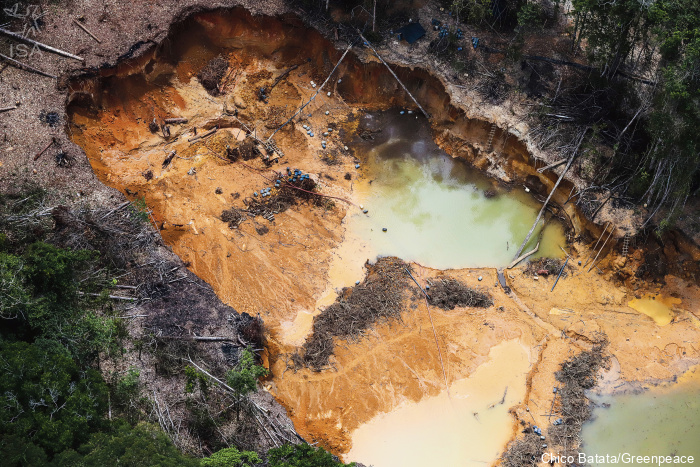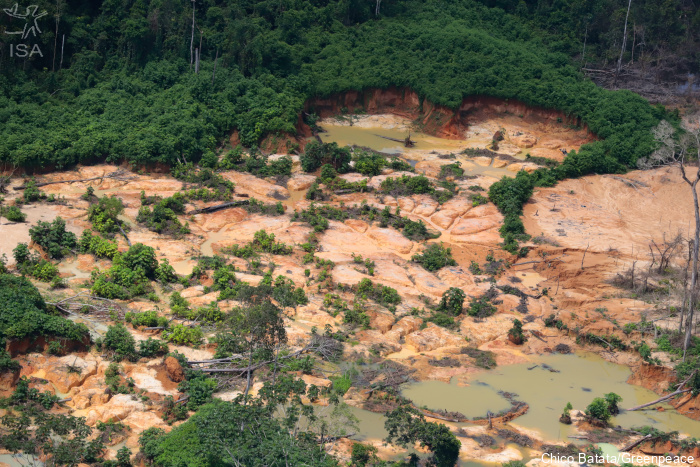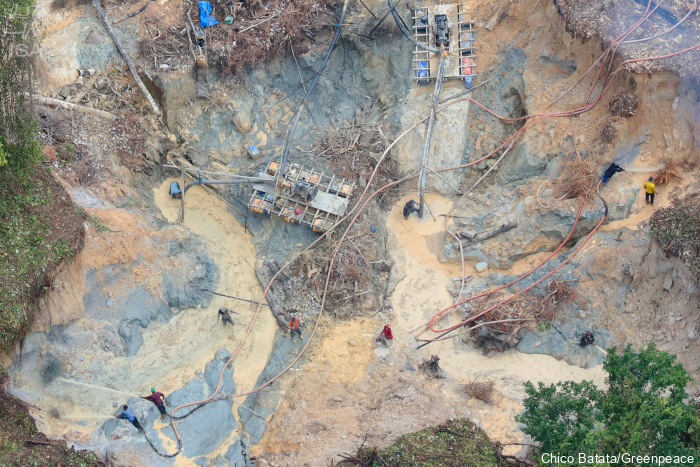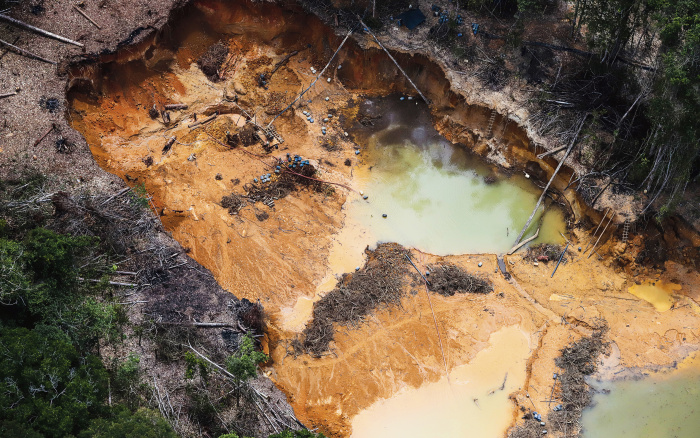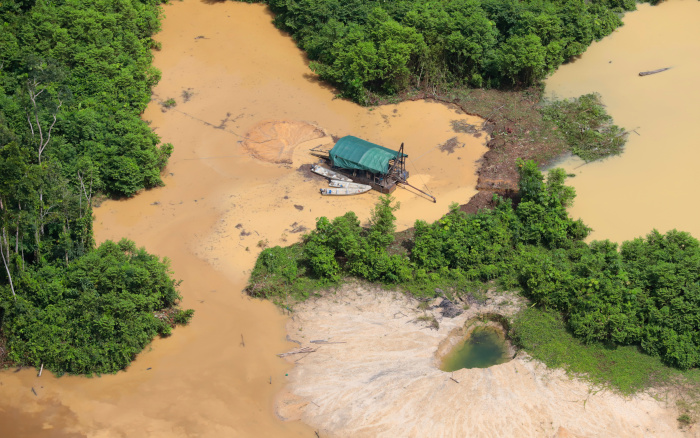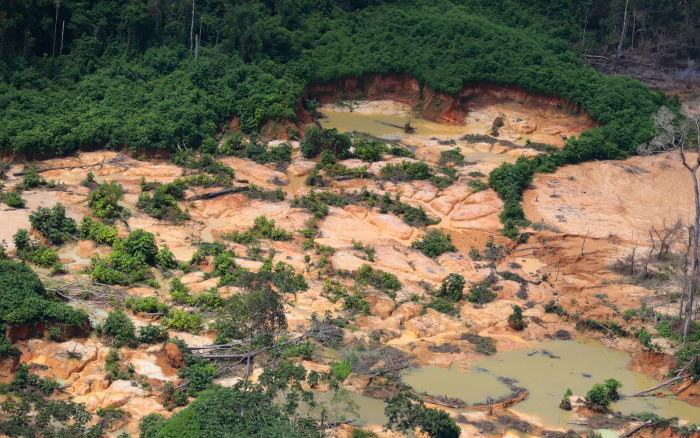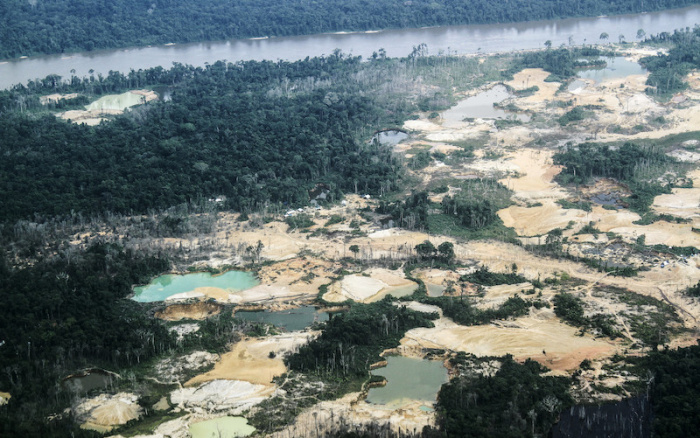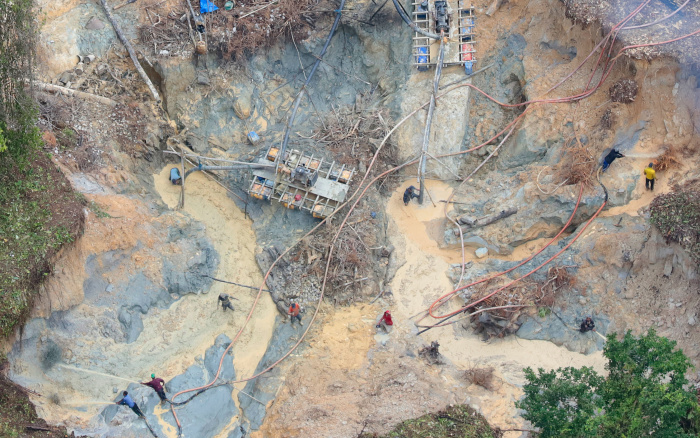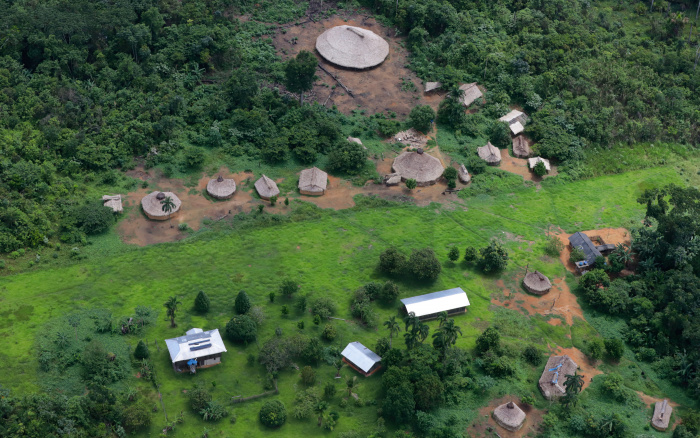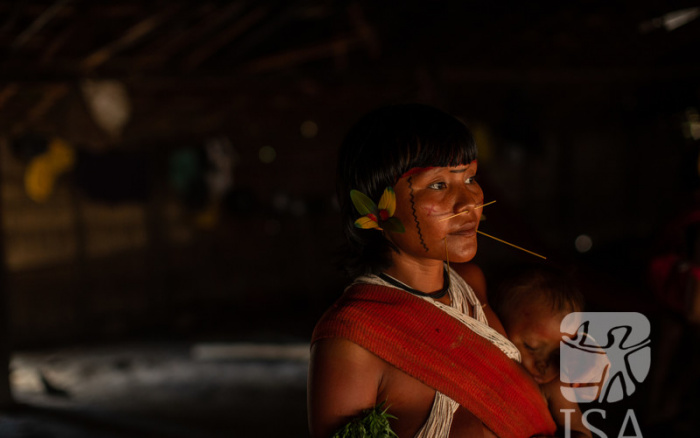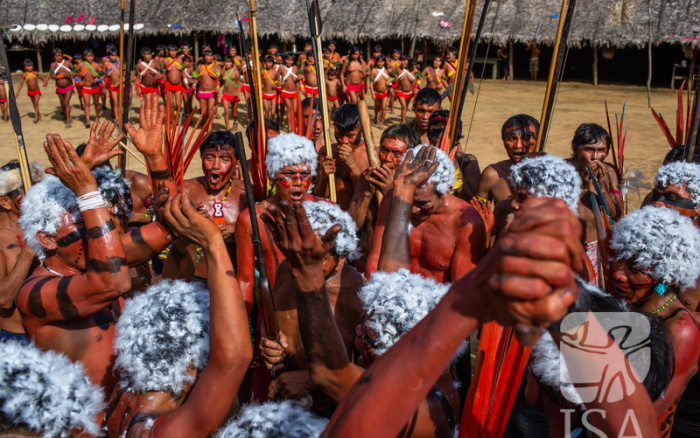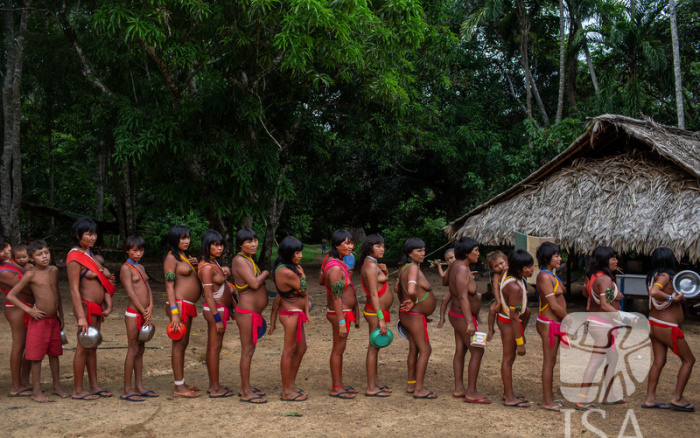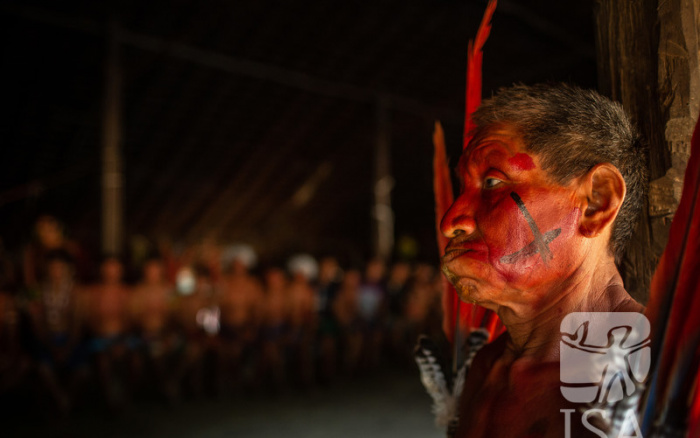Você está na versão anterior do website do ISA
Atenção
Essa é a versão antiga do site do ISA que ficou no ar até março de 2022. As informações institucionais aqui contidas podem estar desatualizadas. Acesse https://www.socioambiental.org para a versão atual.
Covid-19 could infect up to 40% of the Yanomami communities surrounded by illegal mining
Wednesday, 03 de June de 2020 
Esta notícia está associada ao Programa:
Yanomami indigenous leaders launch a campaign for the immediate removal of 20,000 illegal gold miners from their territory to prevent the spread of the disease through their villages
A new study demonstrates that Covid-19 could infect up to 40% of the Yanomami who live closest to areas being invaded by illegal miners. The study was carried out by the Socio-Environmental Institute (ISA) in partnership with the Federal University of Minas Gerais (UFMG), and reviewed by the Oswaldo Cruz Foundation for Public Health (Fiocruz). There are currently about 20,000 miners working illegally in the Yanomami Territory. This is a historic problem which has become a serious public health issue amid the Covid-19 pandemic.
To avert a tragedy, the Forum of Yanomami and Ye’kwana Leaders is launching a campaign #MinersOutCovidOut. The objective is to mobilize society and put pressure on the government to mount an operation to remove the illegal invaders from the territory. This measure is essential to enable the Yanomami to socially isolate themselves in order to avoid the spread of Covid-19.
The disease has already killed three Yanomami and there are 44 more confirmed cases among the Yanomami and Ye’kwana. "We are following the spread of Covid-19 in our land and are very saddened by the first deaths of the Yanomami. Our shamans are working non-stop against the xawara. We will fight and resist. But we need support from the Brazilian people and from people all over the world" says Dario Kopenawa Yanomami, the son of respected leader and shaman Davi Kopenawa and vice president of the Hutukara Yanomami Association . "Xawara" is the Yanomami word for epidemics brought by outsiders.
The Yanomami Territory is the most vulnerable indigenous territory in the Amazon to the virus. One reason is because of the health system that serves the territory. The health posts that serve the Yanomami score worst in all of Brazil, as they have the lowest availability of beds and ventilators and the greatest limitations related to transportation of patients to other regions with more health infrastructure. In this context, the posts nearest the mining areas score worst of all.
The Yanomami also have a history of respiratory diseases that has gotten worse in recent years. This makes the potential mortality rate from the disease much higher among them than in the Brazilian population in general. Another point is that the people served by these health posts have a high degree of social vulnerability: they suffer from the worst life expectancy at birth, low levels of education, a high percentage of the population living in extreme poverty, people in households with inadequate water supplies and sewerage, and without running water.
Today the miners are the main vector for transmitting the pandemic within the Yanomami Territory. They frequently travel from Boa Vista (capital of the state of Roraima) and other cities nearby into the territory by boat and plane, and have access to better infrastructure than the official health agencies. Covering 9.6 million hectares and a population of 27,398 people in about 331 communities – including several isolated (uncontacted) indigenous groups – the Yanomami Territory lies in the states of Amazonas and Roraima, which are both among the states with the highest number of cases of Covd-19 in proportion to their populations.
Roughly half of the Yanomami Territory’s population (13,889 people) lives in communities less than 5 kilometers from an illegal mining site. In the report, ISA calculates different scenarios for transmission rates in those villages. In the worst case scenario, 5,603 Yanomami - 40% of the population in those communities could become infected with the virus. If lethality is twice as high as in the non-indigenous population, between 207 and 896 Yanomami could die as a result of Covid-19, up to 6.4% of the population in those areas.
A mining epidemic
About 20,000 gold miners are operating illegally in the Yanomami Territory. With the global economic crisis, the price of gold is breaking new records, which encourages mining. The systematic dismantling of environmental policies by the current federal government - which is weakening actions to stop illegal mining - and the position repeatedly taken by the President of Brazil in favor of mining, has encouraged the massive invasion of indigenous territories.
The increase in mining on Yanomami lands has been detected by ISA’s remote monitoring system, Sirad (Deforestation Radar Indication System). Since October 2018, a cumulative 1,925.8 hectares of forest have already been degraded by illegal mining. In March 2020 alone, 114 hectares of forest were destroyed by mining.
ISA’s monitoring system has recorded the expansion of illegal mining in regions near indigenous communities (Hakoma and Parima) which have less contact with society and whose immune systems are more susceptible to disease. This is extremely worrying at this moment of unprecedented threat of contagion from Covid-19 among indigenous and non-indigenous people alike.
The study looked at a number of critical health posts in the territory, estimating how the transmission of the disease in these places could happen. For example, in Surucucu, a representative of the District Council for Indigenous Health (Condisi) who tested positive for Covid-19 visited the area covered by the health post. In the worst case scenario, assuming the most intense transmission, this single case in the region could result in 962 new cases after 120 days.
If nothing were done, that means that 39% of the population served by the health post would be infected. If the mortality rate is twice as high as in the non-indigenous population, there would be between 35 and 153 deaths, using the rates in Roraima and Amazonas states respectively.
Since the beginning of the Covid-19 pandemic in Brazil, doctors have been warning of the greater risk facing indigenous peoples. For cultural reasons, many indigenous peoples are less able to implement social isolation. The Yanomami, like other indigenous peoples, are among the most vulnerable to the impacts of the new disease and could be severely affected by its spread. For this reason, they must be urgently protected, or they are at risk of genocide - with the complicity of the Brazilian State.
The #MinersOutCovidOut campaign is an initiative launched by the Forum of Yanomami and Ye’kwana Leaders and the following organizations: Hutukara Yanomami Association (HAY), Wanasseduume Ye'kwana Association (SEDUUME), Kumirayoma Yanomami Women’s Association (AMYK) Texoli Ninam Association of Roraima State (TANER) and the Yanomami Association of the Cauaburis River and Tributaries (AYRCA).
The campaign is supported by the Coalition of Indigenous Peoples of Brazil (APIB), Coordination of Indigenous Organizations in the Brazilian Amazon (COIAB), Socio-Environmental Institute (ISA), Survival International, Greenpeace Brasil, Conectas Human Rights, Amnesty International, Amazon Cooperation Network (RCA), Igarapé Institute, Rainforest Foundation US and Rainforest Foundation Norway.
Clara Roman
ISA
Imagens:



